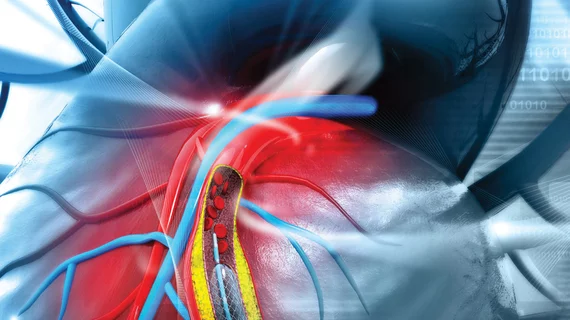Long-term cardiac monitoring detects unsuspected AFib among stroke patients
Long-term cardiac monitoring with a small chip can help identify lengthy episodes of atrial fibrillation (AFib) in stroke patients, according to a new study published in JAMA.
The STROKE-AF trial, funded by Medtronic, included nearly 500 stroke patients. The mean patient age was 67.1 years old, and 62.4% were men. All patients had an index stroke attributed to either large- or small-vessel disease within 10 days of treatment. Each participant’s health was tracked with either an insertable cardiac monitor (ICM)—a solution manufactured by Medtronic—or usual care, which included 12-lead electrocardiograms and other external event recorders.
Overall, AFib detection after 12 months was much higher in the ICM group (12.1% of patients) than the usual care group (1.8% of patients). A majority of AFib episodes lasted at least one hour. ICM procedure-related adverse effects were reported in four total patients—they included one site infection, two incision site hemorrhages and one case of implant site pain.
While these findings appear to suggest that treatment with an ICM can improve AFib identification, the authors did caution that additional, more focused research is still needed.
“It is important to note that in the absence of a comparator group of patients with similar characteristics but without stroke, it is not possible from this study design to determine whether the rate of AFib detection was related to the stroke or represented background asymptomatic AFib that would have been detected at a similar rate in the absence of stroke,” wrote lead author Richard A. Bernstein, MD, PhD, a professor at Northwestern University Feinberg School of Medicine, and colleagues. “This study also did not address whether identifying AFib in this setting affects clinical outcomes.”
Even with those caveats in place, however, the authors do see these findings as a significant step forward in our understanding of AFib detection.
“Based on the study findings, we believe that patients with stroke who are similar to those in the STROKE-AF Trial should now undergo long-term cardiac monitoring with an ICM to identify unsuspected AFib,” senior author Lee H. Schwamm, MD, neurology chair at Massachusetts General Hospital, added in a prepared statement.
Click here to read the full analysis.

